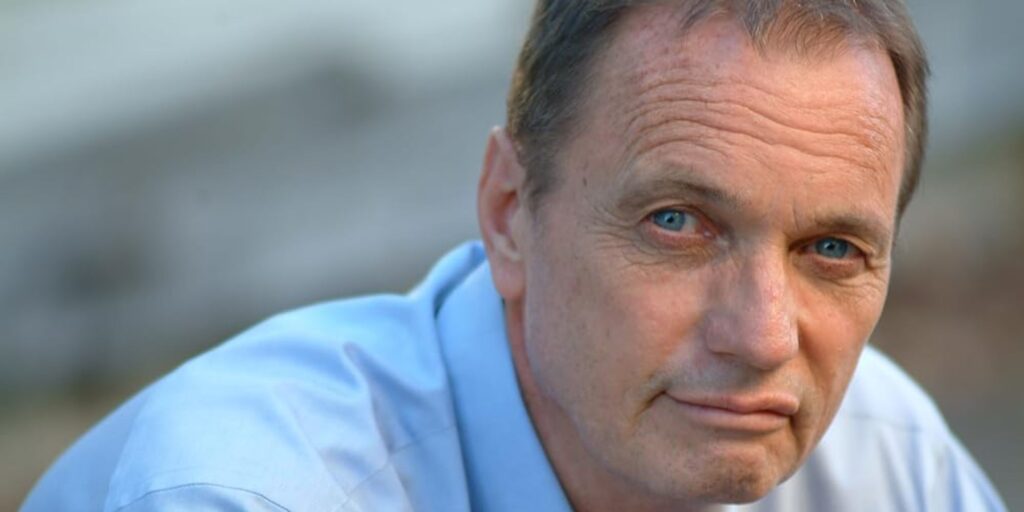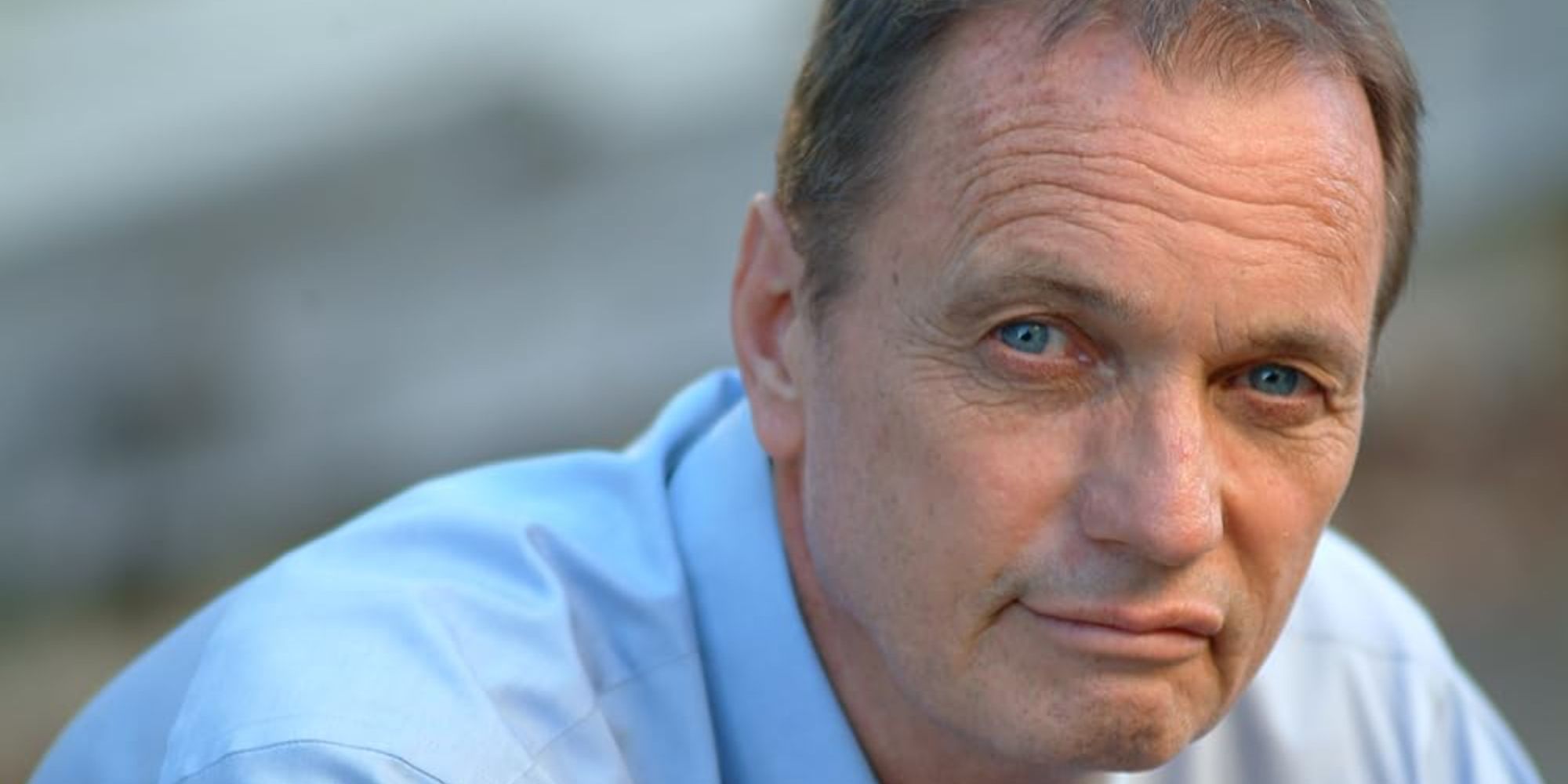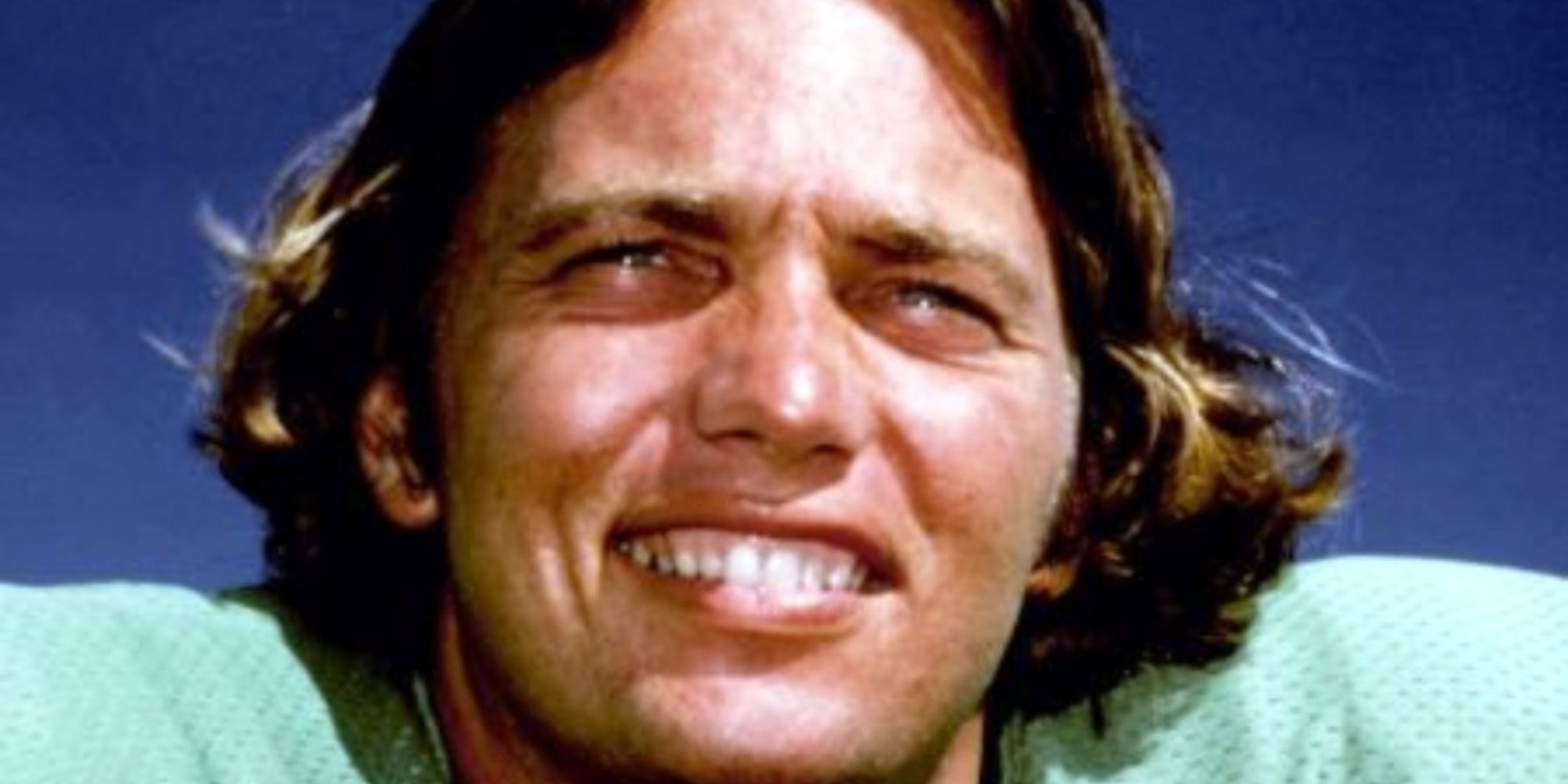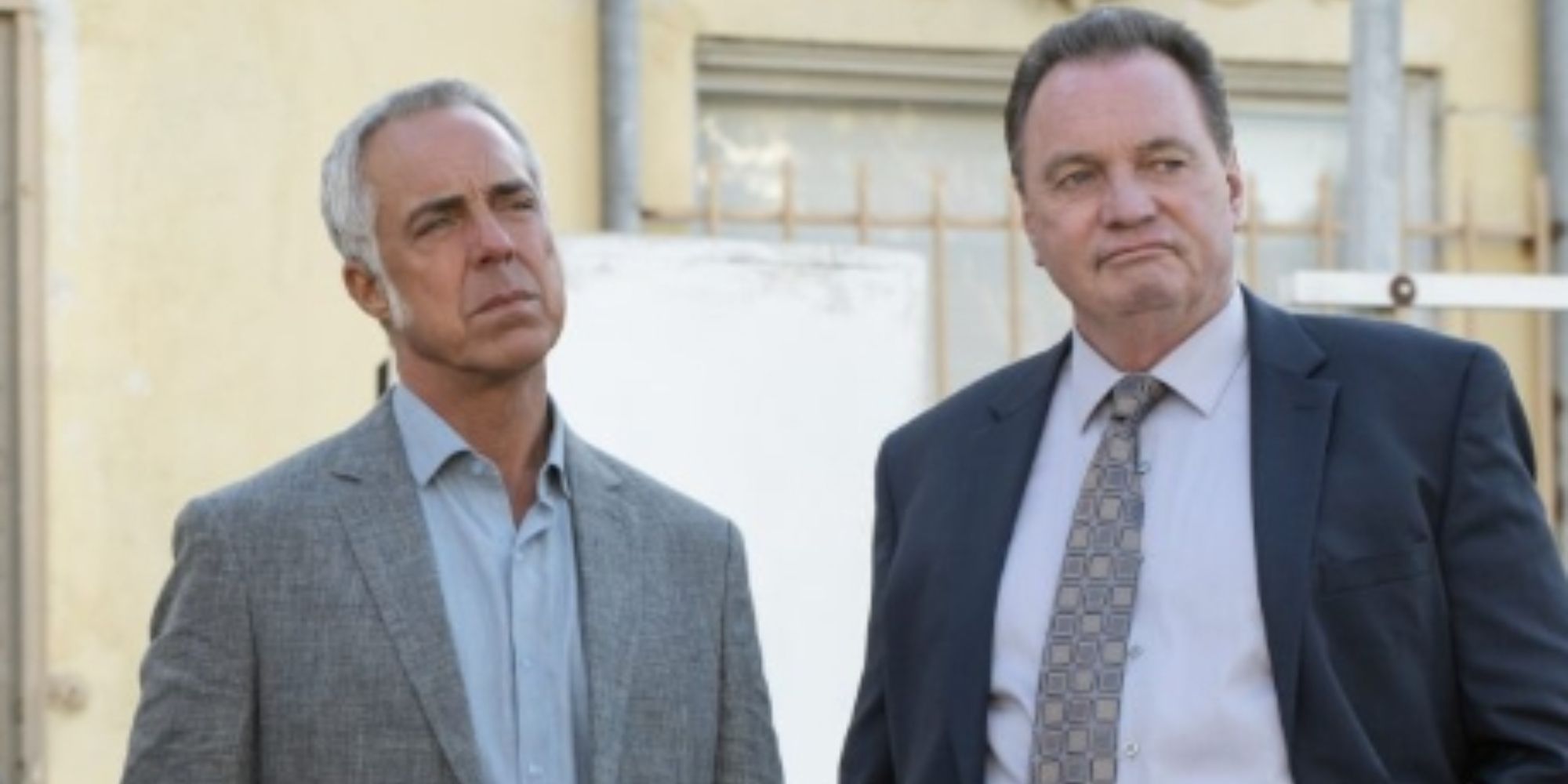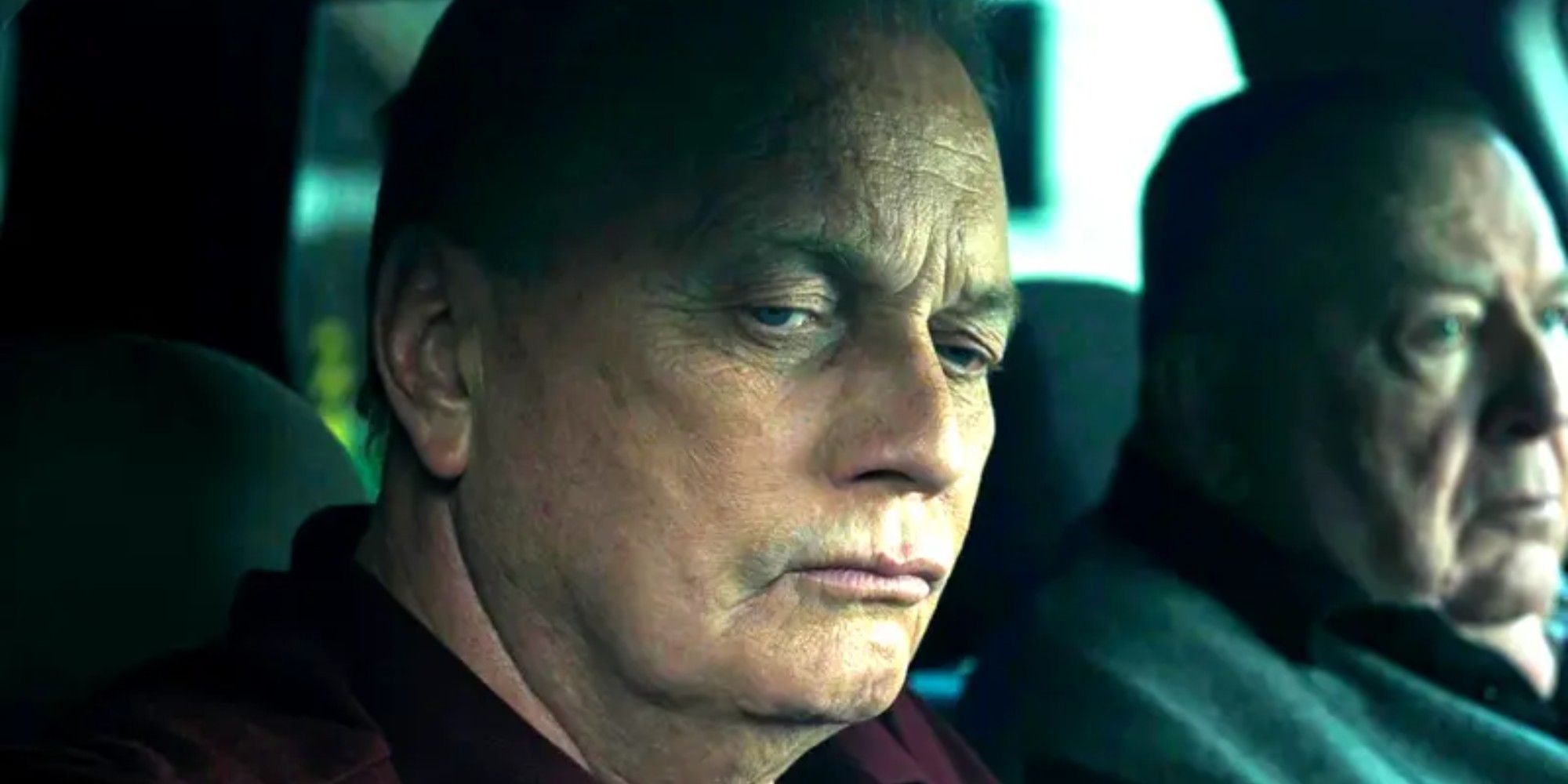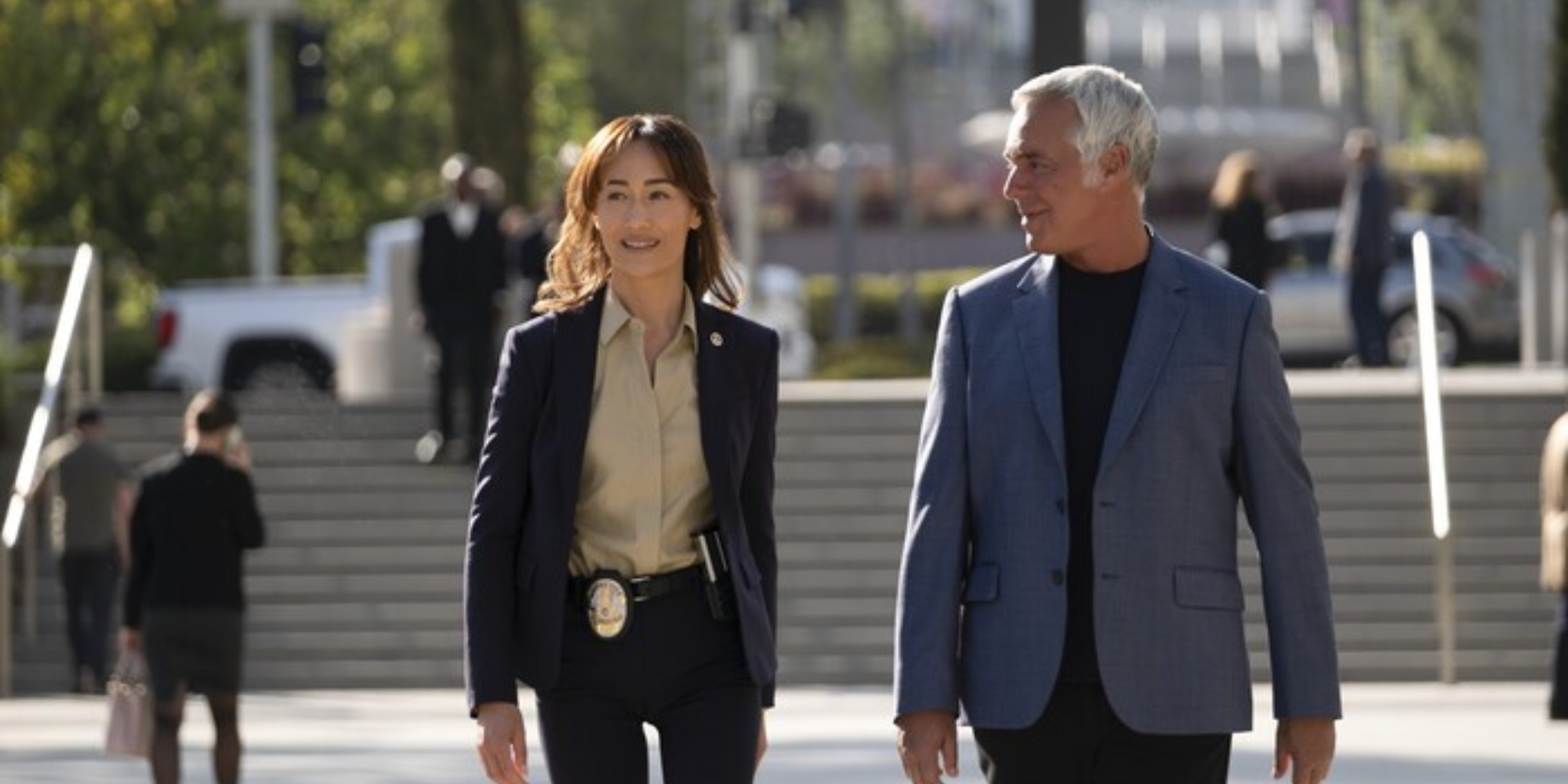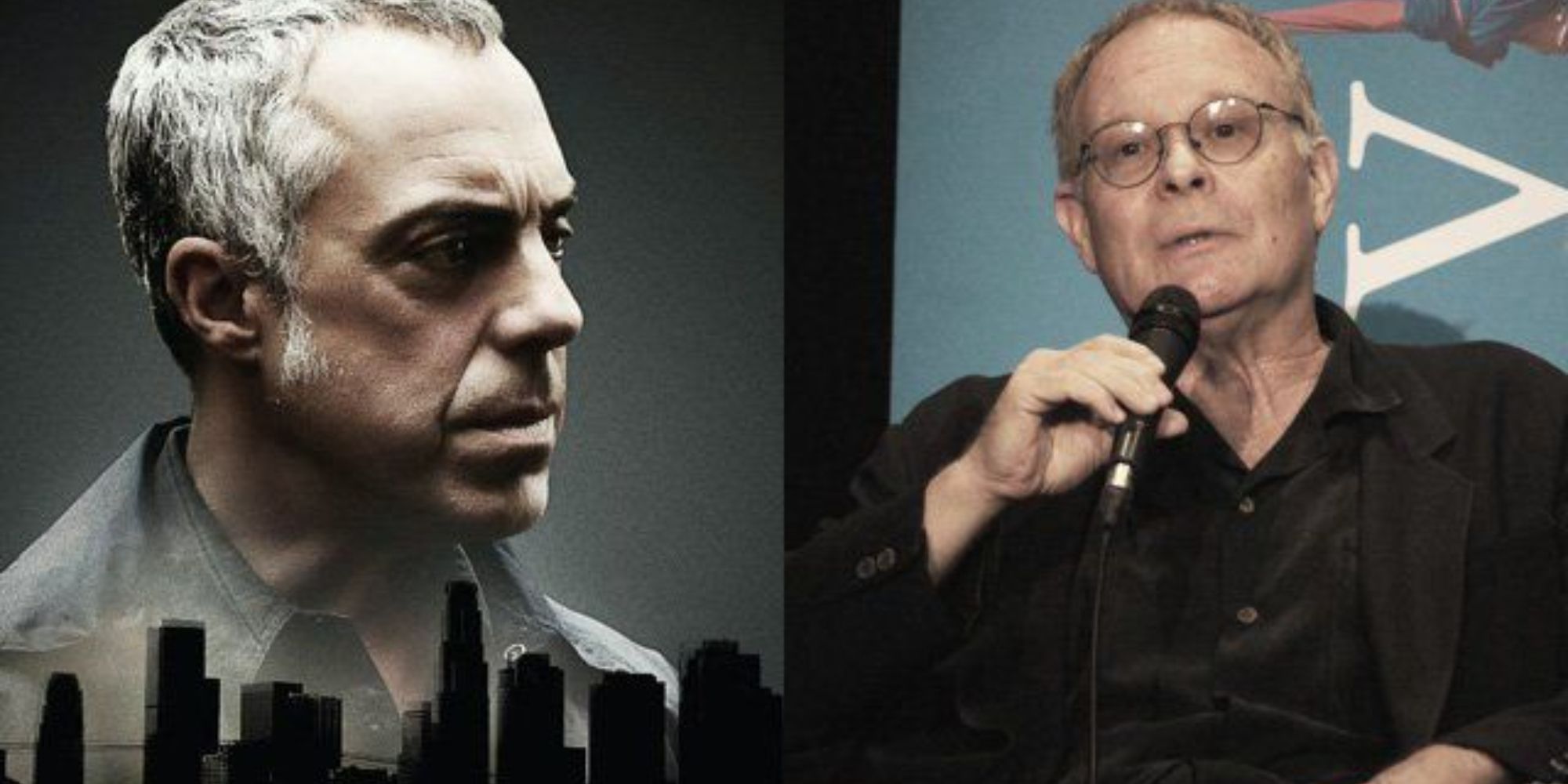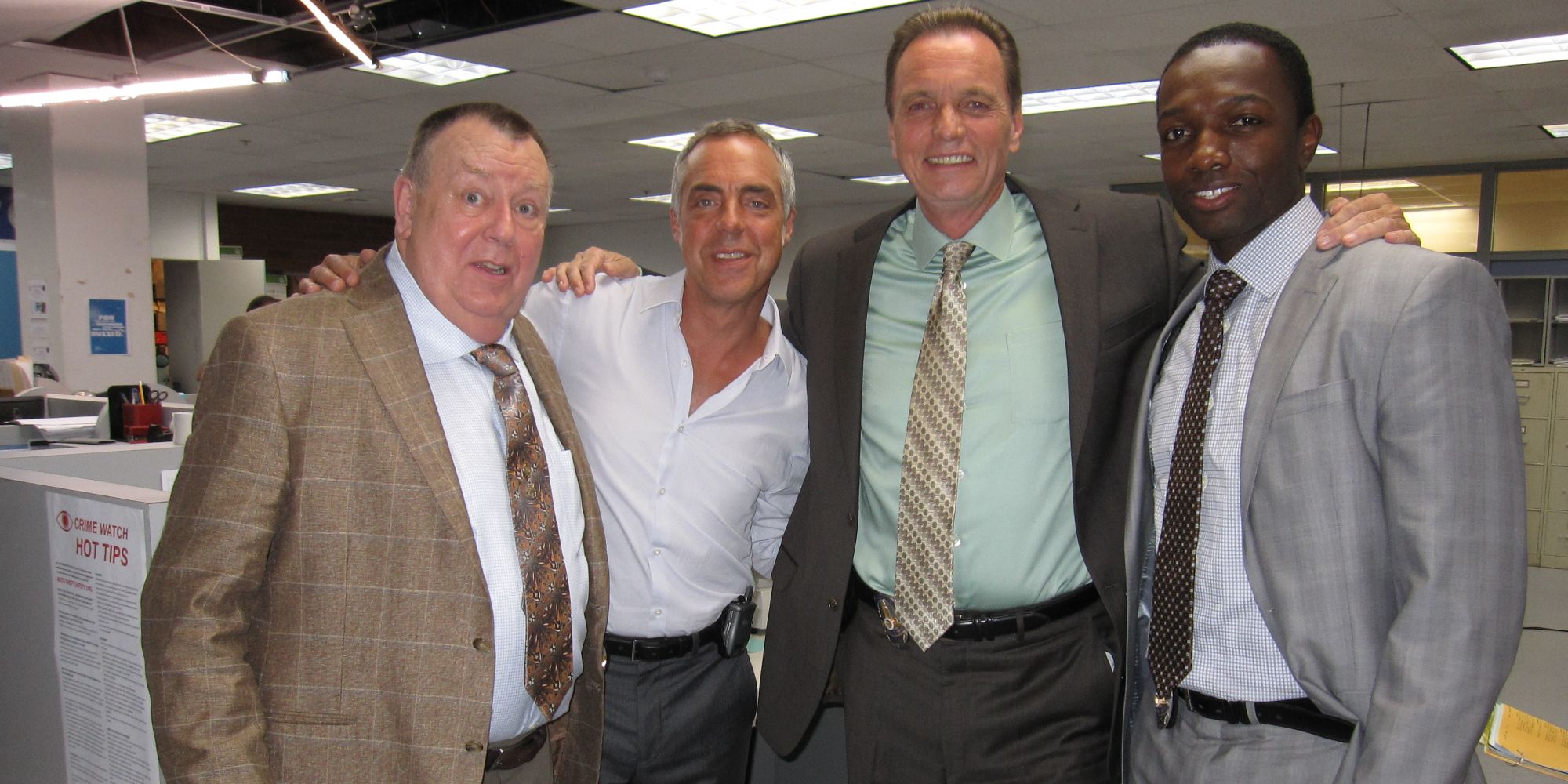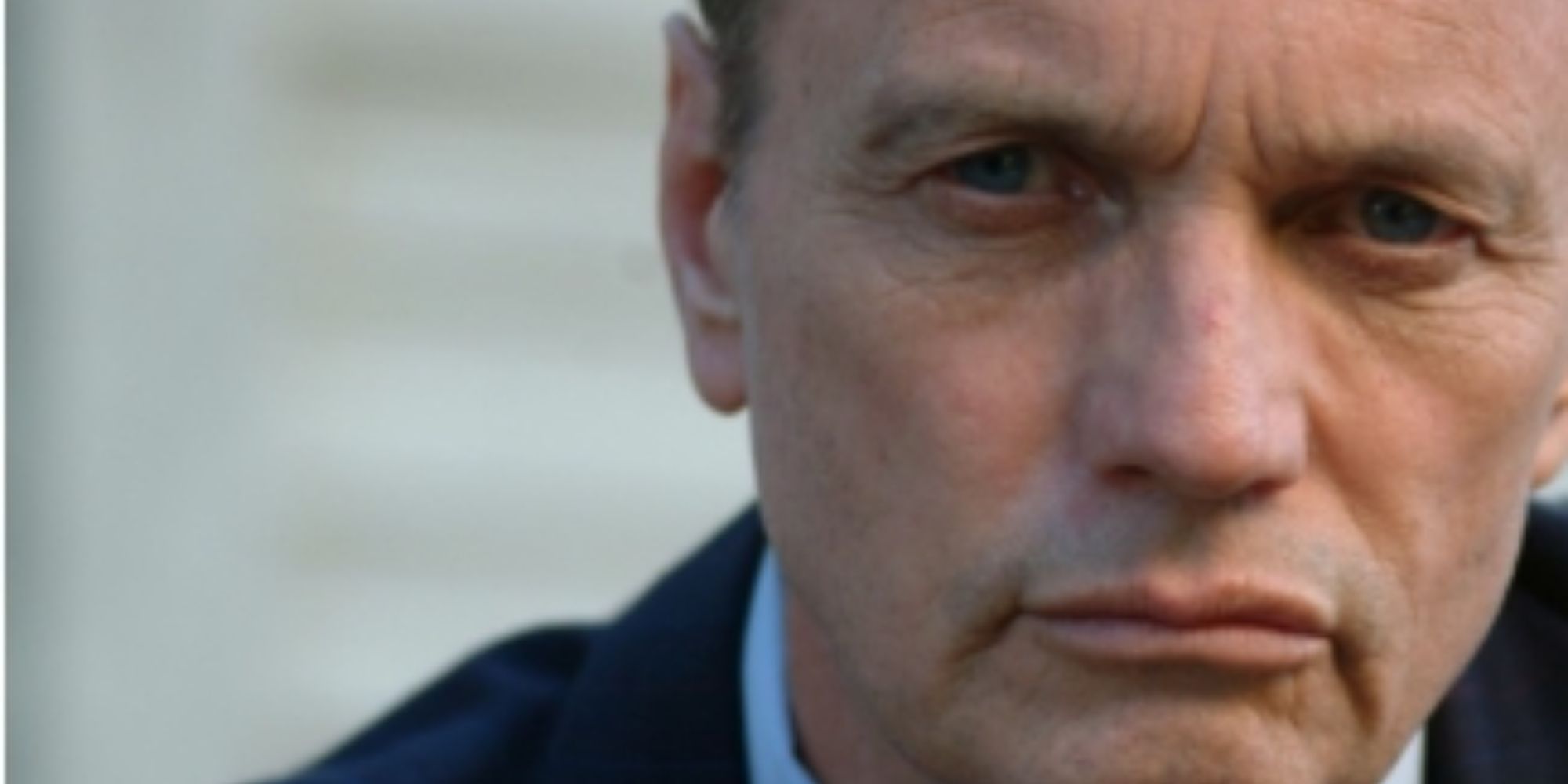Summary
Gregory Scott Cummins talks about Bosch: Legacy’s abrupt cancelation and how it left fans, cast, and crew blindsided.
Cummins praises Eric Overmyer’s role in shaping Bosch and Bosch: Legacy.
Cummins supports the potential return of Bosch: Legacy with a movie adaptation, while hoping for the Ballard spin-off to succeed.
Bosch: Legacy’s third and final season has come to an abrupt end, and it was a bittersweet feeling for fans as well as the cast and crew, who were blindsided by Amazon’s decision to cancel it back in September 2024. The Save Bosch: Legacy petition has over 34,000 signatures, and there is hope that Harry Bosch will get a proper ending one day. Game Rant interviewed Gregory Scott Cummins, who played Crate Moore in Bosch and Bosch: Legacy. The legendary character actor talked about his wonderful chemistry with Troy Evans and the joy he got from portraying the real-life heroes in law enforcement. Cummins also gave his honest opinion on why he thinks Bosch: Legacy was canceled, while also sharing his full support for the Ballard spin-off.
Cummins is one of the most versatile supporting actors in Hollywood. His early career was defined by playing a variety of villainous roles in television and film. However, it was Cummins’ role as one half of the iconic fan-favorite duo, Crate and Barrel, in Bosch and Bosch: Legacy that is arguably the best of his 40+ year career. The stories of his time on Amazon’s flagship show are epic, and there’s one particular running joke involving Titus Welliver that will have all Bosch fans laughing until they cry.
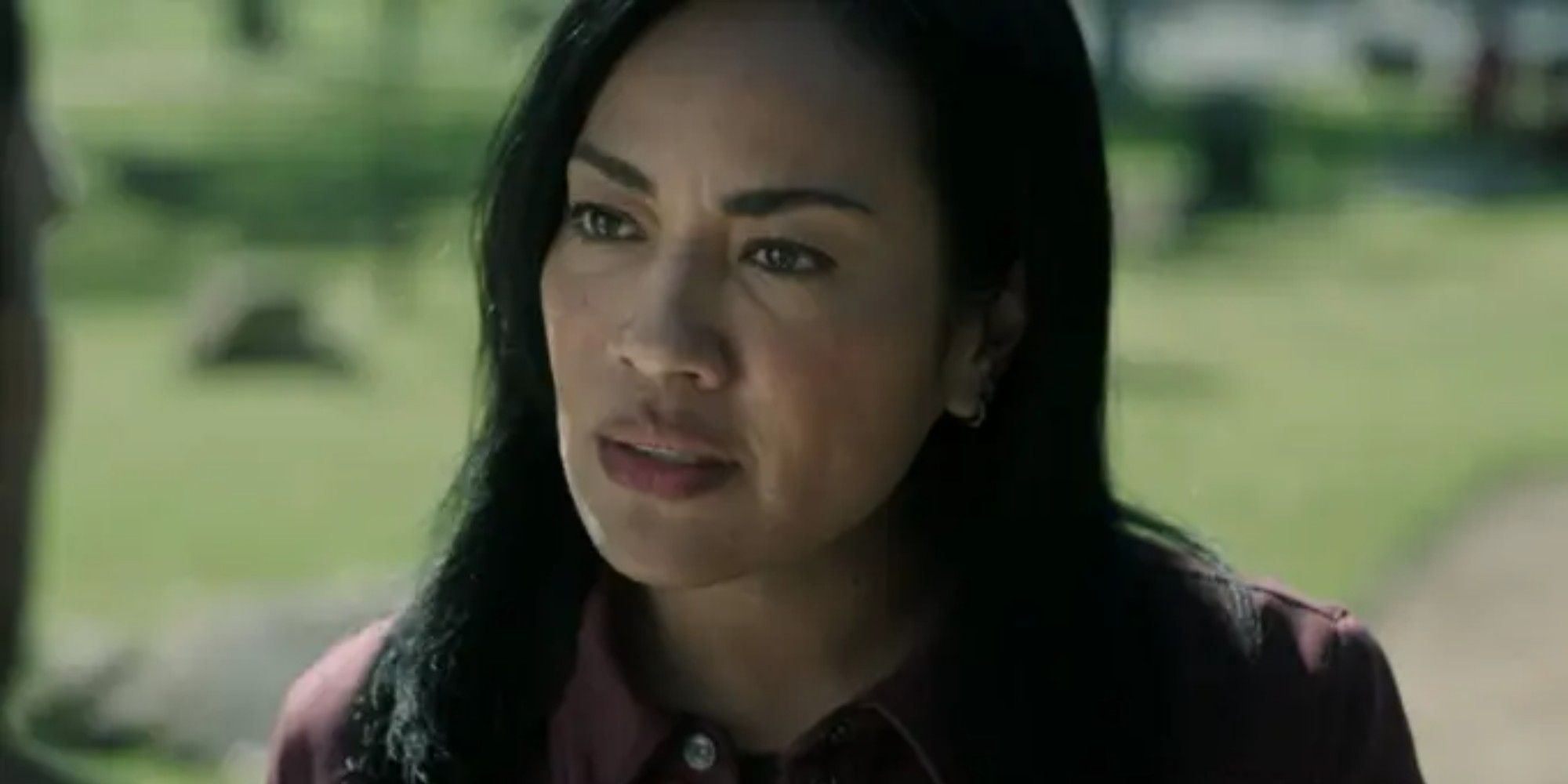
Related
Bosch: Legacy’s Denise G. Sanchez Talks Vasquez’s Arc, Bittersweet Finale & Bosch Day [Exclusive]
Game Rant spoke to Bosch: Legacy’s Denise G. Sanchez who plays Reina Vasquez, about the bittersweet finale and her emotional new arc.
Gregory Scott Cummins Had A Very Different Career Path Before He Established Himself As One Of The Most Versatile Actors In Hollywood.
I hear you had a promising football career before you got into acting.
Well, it’s not just football. Baseball was my first love. At the end of high school, I was drafted by the Oakland A’s in the 10th round. I wanted to go to college to play baseball and improve my draft position. I was offered a baseball scholarship from the University of Pacific in Northern California and San Jose State, but I was also on the football team. I got recognized as a first-team All-East Bay punter. Cal was interested in my baseball skills, but I had a really bad game when their recruiters came to watch me. So they brought me in as a punter and, as a true freshman, I ended up getting my scholarship and things were going well.
I gave up my baseball for football because I wanted to go to Cal. It was a better academic school. But maybe I should have gone to UOP or San Jose State and played baseball and see if I could improve my draft position in the NFL. But you make decisions, and you just go with them. I transferred my last two years to the University of Hawaii and had two really wonderful years there. I had 40 pounds of muscle by the time I was my redshirt junior and senior year. Green Bay called me after the draft and wanted me to come to camp with them. I got an agent, and he talked me out of going and tried to get me somewhere else because I didn’t realize he had some punters he was already representing, going to Green Bay.
My head coach called me and wondered why I hadn’t showed up. And he said, ‘They had you as the number one punter coming out of the country in 1979.’ He said, ‘Why didn’t you go?’ Three of the punters who got cut from that camp ended up getting picked up by other teams that same year and had 14 and 15-year NFL careers. And humbly, I believe I was better than they were. But I sat out a year and then went to the Chargers, and the next season I tore my right thigh muscle sprinting on the grass field. I hit a gopher hole and stretched my leg too far and ripped my right thigh muscle from knee to hip, so I was released.
What made you want to take up acting after the football injury?
I always wanted to be an actor. I enjoyed doing it in college. And the injury allowed me to move into it a little earlier. I got into the graduate program at UCLA at 27 years old in 1983. And once I completed that, I worked in theater professionally after, in 1985, the summer PCPA Theater Fest in Solvang, Santa Maria. The same place as Troy Evans was seven years earlier.
Life has got a lot of pathways that you can take. And sometimes a door has to close for another to open. I just knew back when I was in seventh grade and I played Scrooge in A Christmas Carol, there was something about acting that was magical. It gave me the same feeling that I had when I was on the athletic fields. It gave me the same thrill.
How did you get established in the movies and television?
I realized that they were casting a lot of actors in the theater from TV and film who were getting the leads. And I figured I could end up doing this for 20 years and still not get the better roles. So I realized it was time. I came back to L.A. and started working on low-budget films, working my way up. I’d get the lead good guy or lead bad guy in these non-union films and did about seven or eight of them in the first couple of years and finally got into a union film. I played a Colombian drug smuggler. I dyed my hair black and had a Spanish accent.
I started late as an actor. If I’d started at 18, a lot of other stuff could have opened up. But I didn’t start till really 30 in TV and film. I just feel fortunate: the goal was to make a living and pay my bills and not have to work another job. And I’ve been able to do that. I’m not a big famous movie star. I’m not incredibly rich. But I’m comfortable. And I saw my mom work for a lot of years on something she didn’t like in order to raise her family. My mom was a real estate broker. She worked 110-hour weeks for 24 years to raise four of us on her own. She was one of my biggest supporters, saying, ‘you know what? ‘If you can find something that you love doing that you can make a living at. You’re blessed.’ I knew the odds of making a living were very slim in this business. But I knew if I worked hard, I could achieve anything I wanted. It’s not like being a lawyer or a nurse or a police officer or a teacher, but then, as time went on, I looked at all these people with these other regular jobs who don’t have security either.
You established yourself as the go-to actor to portray the bad guys in Hollywood. Tell me about that experience.
Because I was so tall, it made the main star look short, and it was difficult to land lead or running roles on television series. So then I moved on to bad guy roles where, most of the time, it was okay to be taller. It can be exhausting playing bad guys for 30 years and doing fights. Working 16-18-hour days back-to-back, shooting days at the beginning of the week, shooting nights at the end of the week, moving back to days; hot weather, cold weather. But it’s been amazing. I spent a lot of years training to be able to play a lot of different types of characters.
I think the training I got, my master’s in acting at UCLA, really helped. They wouldn’t let me play what came easy to me, which was just kind of being myself, being the leading man. I have a little thing that I’ve been joking about for years. I never get upset when I don’t get cast in a role, because I just say I have no acting ability whatsoever. I have just had a career based on nothing but my incredibly good looks.
I’ve heard this is one of your routines.
Yes. So, I just had an audition last week and I didn’t get it. It didn’t bother me at all. I was just too good-looking. I’m sure that’s the reason. How can you be upset that you didn’t get a role because you were just too good-looking? It’s my own little dream world and I like it there.
What did Titus Welliver think of this routine when you worked together on Bosch and Bosch: Legacy?
It drove him crazy. He’s been very jealous that I’ve been better looking than him all these years. But aside from that, Titus is just absolutely incredible. His success couldn’t have happened to a nicer guy. He’s so talented. He’s just very friendly and very welcoming to everybody. He created this wonderful environment.
He needs to get over the fact that he’s not better looking than you though, right?
Actually, he’s accepted it. Titus is attractive but not quite on my level. You can put this in the article, it’ll crack him up. Every day on the set, I would walk in, and I would just tell everybody or tell him how much better looking I was. And it must be so difficult for him every day when I’m there. All of a sudden, he’s second-best looking. So that’s why he would moan and groan every time I came onto the set, because all of a sudden, you know, he’s been upstaged. It’s been confirmed by Michael Connelly that I was hired because of my good looks to attract the female demographic.
The camaraderie on the Bosch set sounds incredible. The casting on both shows was spot on.
Yeah, I think they did an incredible job casting Bosch and Bosch: Legacy. Sitting in the audition room were Eric Overmyer and Michael Connelly. And they knew what they wanted. I don’t know how they figured it out, but the chemistry with everybody just worked great. And the characters were great. The most important thing is casting.
The show wouldn’t be the same without Crate and Barrel.
I appreciate that. I’ve had a few people mention that to me. It’s a serious show and there’s a lot of drama, and it really captures the excitement and tension of what’s going on. Police officers in real life who go through these cases are some of the funniest people I know because they have to relieve their tension at times. Crate and Barrel are serious at times. But there are other times they need someone to crack up and laugh and play practical jokes. And that’s what they do. There are some other shows that have some cop duos that just play comedy all the time. And they kind of know it. And it doesn’t really work. This isn’t a sitcom. It’s got to come out of truth and reality. I base some of what I do on one of my best friends, who was a former LA County sheriff, and he’s one of the funniest guys that I’ve ever known, but when he’s serious, you don’t want to mess with him. So this was all part of what Troy Evans and I did. I’ve had so many police officers or detectives come up to me and say, ‘We have a Crate & Barrel in our division.’
I love the scene in the original Bosch series when Crate steals Jerry Edgar’s chair. Hilarious
Yes, the scene where Jerry Edgar was gone for a while when he got injured and he came back. Crate took Jerry Edgar’s chair, and he was sitting in it. Edgar was walking around the whole bullpen, finding stuff that people had taken and bringing it back. And the last thing is, you know, he comes around, and I’m acting like I don’t know where his chair is, and then he comes around, looks at the chair I’m sitting on, and it says J. Edgar on it. ‘Oh, how did that happen?’ It’s funny. But this is real stuff. It’s just people goofing around with each other, playing practical jokes. This is what goes on in real life.
Save Bosch: Legacy Key Points
Sign the petition to Save Bosch: Legacy HERE
Spread the word by visiting Bosch: Legacy’s official Facebook and Instagram accounts, and tell other fans about the cancelation, and link to the petition.
The Problems With Streaming And The Push Towards The Younger Demographic
Tell me about how streaming changed the industry for better and worse.
This whole business here of streaming is a whole different business model. We used to have network TV and the majority of their revenue really comes from advertising. They’re going to make a lot of money, and it depends on the Nielsen ratings. They can see the viewers they get per show, and then they can show that to the advertisers, and then they pay for a 30-second commercial, and they know how much money they’re getting. In the old days, if a show was successful it would be 30 to 40 million viewers. Now it’s more like 18 million viewers for a network show. It’s a big deal. But they’ve got that model set. And as long as the viewership stays high, the advertisers are willing to pay.
That was the model for years and years. Streaming came into it from a place where they didn’t have commercials in the beginning, and it was all subscription-based, so they would take money, and put it into a show. Bosch was really Amazon’s big hit show. I don’t think it was its first show, but it was a big hit show that got a lot of people to join Amazon’s membership. They have the demographic numbers, but I’ve heard through the grapevine that the average viewer of Bosch: Legacy is 50 years old and over. So once they get a certain number of people signing up in that age group and not many more, they’ve already got them. So then they started to do commercials to bring in a little more revenue. That’s what I believe has happened with Bosch: Legacy’s cancelation, as they needed to continue to get new subscribers to make it more attractive to the younger demographic. That’s always been the case with network TV. It’s always been a thing. More so now, because the bulk of their money is new memberships. When it comes to our characters, Crate and Barrel, we saw what was happening when we were on Bosch Legacy Season 1, and then they’ve been slowly cutting back on our characters.
The Move From The Original Bosch Series To Legacy, The Cancelation And The Transition To Ballard
Why did the original Bosch series turn into Bosch: Legacy?
I didn’t think we needed to change from Bosch to Bosch Legacy. But I know why they did that. It was all about money. They could start the actors again on a new pay scale. They could start the crew again on a new pay scale. Bosch is not really Bosch Legacy. It’s just Harry Bosch after he retired from the police department. He became a private investigator. I mean, the show is about him. And you can call it anything you want, but just because he retired from the police department and started working as a private investigator doesn’t make it another show.
I agree. Troy Evans told me something similar about Bosch transitioning into Bosch Legacy. He said, ‘Amazon swept all those people out.’ They fired a lot of people. People that have worked really hard for years, earn a little bit more money, and they get screwed over by Amazon. I did an article about it.
I read it. It’s all true. They kept some people, like makeup and hair. I don’t know what their deals were. It was a tight-knit group. And everybody cared and everybody was part of the whole. Everybody Counts. Each season of Bosch and Bosch: Legacy was based on two novels. There were seven seasons of Bosch, 14 novels, but there were 16 novels that were written. But they were running out. Bosch was moving to private investigations. And then the last five or six have been Renee Ballard novels. So the move was coming. But they had one more season of two novels that they could have written for Bosch Legacy Season 4. But they just moved it over to the Renee Ballard a little quicker.
It wasn’t a surprise that they canceled Bosch Legacy. This all tied together, and it reinforced what we thought, which was that they were possibly trying to have some of the older people on Bosch Legacy, but also go for some of the new. Also, Titus Welliver and Mimi Rogers are at a certain age. But then they had Maddie and Vasquez, and Mo ‘Maurice’ Bassi, so they had some youth. They were moving away from Crate and Barrel, and we were being used less and less, which is fine. That’s the way it goes. I loved seeing what they were doing with Maddie and how they were branding her character. And Vasquez. I just want to say, Denise Sanchez is outstanding. And her relationship with Maddie is marvelous on screen. And Mo’s character, he does stuff that Crate and Barrel wouldn’t be able to do.
But I kind of saw it coming with this move to Ballard where Amazon wanted to go younger. I don’t think this is Michael Connelly or Fabric Entertainment. Bosch: Legacy wasn’t bringing in younger people. I’m rooting for the Ballard series just as strongly as I did for Bosch Legacy, even though they cut back on Crate and Barrel because I love the people who make it. Michael Connelly is such a wonderful human being. So talented. The producers and the actors on the show, they’re all just like we were starting a new series. I think it’s going to be successful. And I sure hope it is. We are in it for one scene. I know Maggie Q is going to be great as Renee Ballard and I know John Carroll Lynch is also going to be great as her partner. She looks young, but she’s been in the business for 25–30 years, so I think they’re just surrounding the cast that might be just a bit younger, and they’re hoping it might draw more membership from younger viewers. In terms of Amazon wanting to go and get a younger demographic audience. It’s just the way it is in the world. That’s just business. I don’t take that personally at all.
After Bosch: Legacy season three was finished, and before it aired, someone at Amazon clearly decided they were going to end it. If they aren’t open with the numbers. Amazon, Netflix, Paramount Plus, Hulu, Disney. They don’t bring the numbers of viewers out like the Nielsen ratings used to do with TV, and it’d be published every week in the paper. They don’t open their stuff up. We do know that the demographic of viewers is a certain age. We don’t have the numbers on how many people viewed it, how many of their members viewed it, and how many times it was viewed. Those are things we don’t know. Only they know. But it seems like the show was a big hit.
Do you have any concerns about the Ballard spin-off?
Cold case detective, Mitzi Roberts, retired last year. Ballard is based on her. But my only concern is that the detectives followed Bosch because it was very realistic and true to life. They are going to have a lot of other younger people helping Ballard out in the cold cases. And obviously, Bosch is going to be there at times. I mean, I don’t think they’re going to lose him completely. He’s crucial. Mitzi Roberts worked in the cold case division in the later part of her detective career, and she was a salaried employee. However, the LAPD doesn’t have enough money to have loads of people on salary running cold cases. The people that do the cold cases in real life are retired detectives in their 50s or 60s, and they’re receiving their pensions, and they work the cases for free with expenses paid.
Cummins Thinks Eric Overmyer’s Contribution As Showrunner Of Bosch and Bosch: Legacy Is Overlooked
Tell me about Eric Overmyer and his contribution to the Bosch-verse
Michael Connelly wrote the novels. He should get the acclaim. Titus Welliver, the star of the show, deserves every ounce of credit. He couldn’t have been a better actor to play that role or a better person. However, the showrunner, Eric Overmyer, is incredible. He is like Shakespeare. When he writes something, you don’t have to change any of it. Michael Connelly is a great writer, but the novels are very centered on the Harry Bosch character and what he thinks. Eric was great at taking that, and expanding the supporting characters and making them more than two-dimensional characters. When you’re watching a show, you have to see a little more than that. You have to see three-dimensional characters around them.
I think Eric Overmyer’s contribution was overlooked. He made this show. And I don’t think it was ever publicly appreciated. We knew. Michael Connelly is basically God. He created this whole thing. But Eric Overmyer translated it for TV. And that is a skill. Keeping the plot lines together, keeping them moving, all the different plot lines interweaving. And then the character development of each character. It’s such an art. He is a genius.
Bosch: Legacy Deserves A Proper Ending
What do you think about Bosch: Legacy’s abrupt ending?
When Amazon decided to cancel Bosch: Legacy, all the actors expected another series. All of them got shot down. Part of the business, but that’s a tough one because a show like this that’s been running for 10 years now. Well, you just look at everything. Homeland, The Sopranos, Dexter. Every show that’s been a solid show for a bunch of years always has, whether it’s M*A*S*H or whether it’s, you know, it’s got a final end. It doesn’t mean everybody has to die or whatever, but it’s got a conclusion. It’s not an abrupt ending like Bosch: Legacy got. The fans want a conclusion. They want a proper ending. I can think of 100 shows right now that have been successful hit shows that had a final episode or a final season.
Prestige TV shows all deserve a proper ending, and Bosch: Legacy is in that group. Bosch continued being golden age television long after every other show stopped.
All the detectives watch Bosch, and they say it covers what we did better than any show that’s ever been on TV. And I’m friends with a lot of cops.
Cummins’ Experience Working On Bosch Was Important Because Real Life Law Enforcement Officers Appreciated His Portrayal
I have police officers that are part of my family. I have a lot of friends who are in law enforcement, from beat cops to homicide detectives. Being on a show like Bosch that portrays what they do for a living is a gift. These heroes, these people that I have admired and respected for so many years, these guardians, protectors of us in society, law-abiding citizens, they put their lives on the line every single day. They go through hell. Their lives are in danger every day that they’re out there, and they’ve devoted their lives to helping us. I have come in contact with so many people across the country who are law enforcement officers, thanking me for representing them so well. And I tell them I can’t accept that. I tell them thank you for what you do. But every law enforcement officer in this country is a hero from the minute they decide to go through the academy, put a badge on and set foot out into the public with their lives in danger. This show was written about real cops, and they wanted us to be as close to reality as humanly possible. And we took that very seriously. We’re just pretending to do what they’re doing. We’re actors. We’re not curing cancer, we’re not saving lives; we’re just entertaining people. Working with these people who are true heroes actually makes what I’m doing so much more meaningful.
Before she retired last year, Mitzi Roberts was on the board of the California Homicide Investigators Annual Conference. That is four days every year. Every homicide investigator in the state of California. Eight or nine hundred people. Not everyone goes, but they have a four-day convention. And she called me up, asking me if I’d like to be our keynote speaker for the California Homicide Investigators’ conference on opening night.’ I’m not a big star, not a big name or anything. I’m just a blue-collar actor here. I kept saying, ‘Why me? I’m not a big name. I’m not a big star.’ And she said, ‘Well, everybody’s seen Bosch. They love your character. You’re a likable, funny guy. You’re a huge law enforcement supporter. That’s what we’re looking for. I’m so honored. It’s in August. I’ve never done anything like that. I’ve gone to some of these functions, but I’ve not spoken at anything. I don’t know what I’m going to say. I’m not a big public speaker.
What you’ve just said there just encapsulates what it’s about, doesn’t it? The fact that people in law enforcement have seen your portrayal in Bosch and Bosch: Legacy.
Titus is the show. If Titus wasn’t great, this show would fall. Titus is the glue that holds it together. Everybody plays off of him and around him, but he’s the deal that makes it work. He’s followed the way Bosch is in the books, but he’s internalized it to a point where it’s become almost a part of him. I know the way he is in real life. He’s making choices. He has much more of a sense of humor than you’d ever imagine playing Bosch. He’s a very funny guy. Very talented. Very extroverted as well. He’s so good.
So do you want to backtrack on what you said about his looks earlier?
No. He’s better than average looking, but he’s obviously not quite at my level. You can quote me on that. He accepts my reality.
The Possibility Of Bosch: Legacy Coming Back And A Funny Story From The Bosch: Legacy Set
I really hope they get to do a movie or another series. I think it will happen. What do you think?
I think it will. Breaking Bad. They had certain plot lines that didn’t end with Jesse, so they did El Camino. It was a perfect two-hour thing showing what happened to Jesse after Walter White died. And then Better Call Saul was great. I’m just so happy to have been a part of Bosch and Bosch: Legacy. And I said to Troy, when we were doing the first season, ‘wouldn’t it be great if it continued for seven seasons or more?’ I mean, I would have been happy with five because I’d never done anything with a recurring role. I’ve always played bad guys. Go in for a movie. I’m dead. I’m gone, but to have something regular, I haven’t done it except for It’s Always Sunny in Philadelphia. And we did go seven seasons on Bosch, and we actually went ten if you include Legacy. That’s incredible.
The creative team behind Bosch had this roadmap. They always know where they’re going. Lots of shows don’t have a clue and just make it up as they go along.
As long as they wanted him, if it was 20 seasons, Titus would have done that. This has been a great character, and I don’t think he was ready for it to end. If this were a network show, they would have done 25 seasons. They’ve got their audience on network TV. They’re still watching the show. The advertisers still see that a lot of people are watching. So the money is still coming in. Actors are on reasonable salaries. The model is different for streaming. If Bosch: Legacy was network television and not streaming, I guarantee you this would still be running.
A great show like Bosch: Legacy could run for 15 seasons or 20, and it would be high quality. I was looking forward to this big expanded Bosch universe. I just feel like it’s a real missed opportunity.
Well, we’ll see. Maybe there’s a pause, but I’ve seen it with Dexter. They waited a few years and decided, let’s see what happened to Dexter. Who knows what’s going to happen? Ballard could explode, and do really well. You never know. We just don’t see the numbers like Amazon do.
They are keeping those numbers away from people.
Well, you can bet they’re sharing their numbers with their advertisers.
Any stories from the Bosch: Legacy season 3 set that you can share with the readers before we wrap up?
The last time on the Bosch: Legacy season 3 set, in the contract where they said ‘preferred name’ I put Mr. Good Looking. I also have it all written down on my medical paperwork.
That is brilliant.
Everyone on set that day, all the crew members, light, sound, all the people that came to me, they had to call me Mr. Good Looking. Titus and everybody else were just saying, “Oh my God, he’s doing it with the crew now.” Legally, everybody had to call me Mr. Good-looking when referring to me. Of course, I’m joking about this, or am I?
Any final thoughts on your experience working on Bosch and Bosch: Legacy?
The greatest pleasure of working on Bosch and Bosch: Legacy these last ten years, other than the appreciation from police others and working with such a wonderful group of people from top to bottom: from producers, writers, to actors and crew. My greatest joy of working on this show has been the great relationship I have developed with Troy Evans, both on screen and off. It has been one of the greatest highlights of my life, both professionally and personally.
Sign The Petition To Save Bosch: Legacy HERE
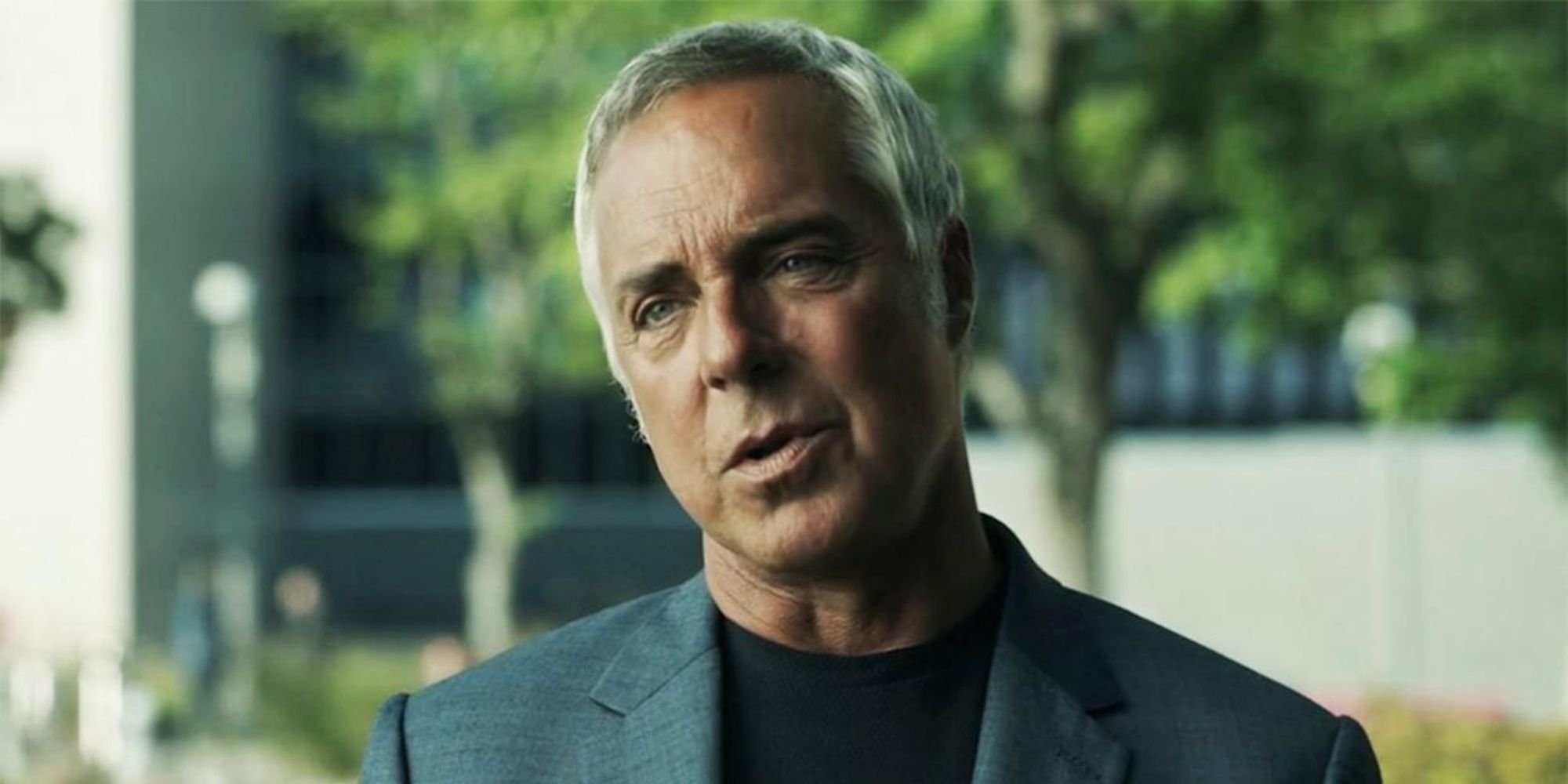
More
The End Of Bosch: Legacy Is The Perfect Time To ‘Dig Down’ And Save The Show
Bosch: Legacy has ended but now is the time for the fans to really kick on in their efforts to save the show.
